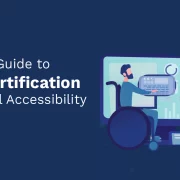
4 Things Educators Should Know About Online Program Management
Between 2020 and 2027, the online program management industry is expected to grow at a CAGR of 15.4%. This is a result of the rise of remote learning during the pandemic. Online program managers (OPMs) create value for institutions by delivering academic courses online. They also specialize in market research, developing courses, overseeing student enrollments, retention, and more.
In recent times, online program management has become a billion-dollar business, with more educational institutions looking to develop courses remotely. With all the hype surrounding the industry, it is important to cover the purpose of OPM, its downsides, and considerations when choosing an online program management partner.Here are some of the important things to know before hiring a company for online program management.
1. The purpose of online program management
Since OPMs develop infrastructure to distribute online programs further, lockdowns and stay-at-home orders have greatly magnified the need for them. Wider audience reach means that more students can be trained in coursework remotely.
OPMs can provide the capital needed for course development. This greatly reduces the institution’s exposure and upfront risk that comes with developing courses. Further, institutions that outsource program management can get by without additional recruitment, manpower, and skills. Instead, OPMs act as all-around third-party solutions for financing, development, and broadcasting of online courses.
2. Choosing the right partner for online program management
Choosing the right partner for online program management can come down to cost-effectiveness. As an institution, it is especially effective to use OPM providers that perform data research and analytics to develop delivery strategies. However, considering the costs and often long contracts – is an OPM provider essential to the development of your course?
OPM experts must produce content that is well received by the target demographic. Along with this, you can evaluate the skills/tools that the OPM service providers are utilizing when choosing a partner for online program management at your institution.
How dedicated is your OPM provider in the constant course development process? Are they willing to provide your students with round-the-clock support? These are some of the questions that you can bring up with OPM providers to better understand their business model and what they can offer.
It is especially effective to use OPM providers that perform data research and conduct in-depth analysis to develop delivery strategies. Between revenue sharing, fee-for-service and co-investment, there are multiple ways that capital can be raised for course development and delivery.
Traditionally, OPMs work under a revenue share model. In this model, the OPM provider finances the project upfront and recovers the costs by splitting the revenue earned. Alternatively, you may choose to work with OPMs under a co-investment model, where the OPM provider and institution both raise the required capital and earn revenue from it.
3. Downsides of online program management
A recurring concern for institutions around the world with online program management is quality. Educators do not want to pay for a service that delivers products that lack creativity and aren’t unique. This is a valid concern considering OPMs work with multiple institutions to churn out courses on large scales.
Another factor that works against OPMs is contract tenure. Longer commitments are often detrimental during uncertain times. With the current COVID-19 pandemic, it’s unclear how the educational courses, in general, will progress in time. Revenue share models with OPMs can be for longer terms of up to 5 years. With the prevailing conditions, institutions are less inclined to take the risk of a long-term commitment.
With the vast amount of positivity surrounding online program management, it is not without a drawback. Revenue sharing models mean that OPMs can end up charging a large part of the total revenue, sometimes more than half of the total. For many institutions, this remains a barrier to using OPMs.
4. The future of online program management
Judging by the prevailing market sentiment, the current decade should see significant growth in the field of online program management. With the ever-increasing trend of remote learning and online course delivery, the requirement of OPM providers has never been greater. Along with this comes the concern of whether OPM providers can scale to meet these requirements without sacrificing the quality of services.
Many OPMs offer 24/7 helpdesk services that can address concerns and provide resolutions around the clock. This is especially helpful to keep productivity at optimal levels. Since you might be working with a remote OPM provider, being proactive and responsive is definitely a strong positive. Market momentum reveals that OPMs are doing better by optimizing the development and delivery of courses from the perspective of students.
OPM providers aim to achieve their goals by working towards creating courses that are clearer and offer more value for students. Utilizing the constructive feedback that is generated from students and faculty members, OPM providers are better able to improve their strategies to suit the needs of those who consume their course material.
The future for OPM would likely see them working to improve flexibility to provide their services a-la-carte. This would solve the constraints of requiring long-term contracts for OPM services. It could also potentially lower costs and work more efficiently for institutions. Online program management can further provide value for students by offering them customized services, time management training, and student counseling. This is beneficial for students because they can derive better education while taking into consideration other requirements that accompany it.Conclusion In light of the ongoing pandemic and with the rise of online learning, it is clear that developing and delivering courses online will be an ongoing activity. More institutions are choosing to employ the services of online program management experts. It makes sense because OPM providers help fund course creation. They work with institutions on a revenue-sharing model or by co-investing.
With the implementation of custom plans and improved student services, OPM providers have a bright future for more growth and added value. The right OPM can help your program to be developed faster and more efficiently. Besides this, they can help raise the capital required under a revenue-sharing model.
Need to know more about our Products & Services ? Drop us a Note.
We respect your privacy. We use the information you provide us to send you relevant content about industry trends and our products & services. You may unsubscribe from our list at any time. For more information, check out our Privacy Policy























